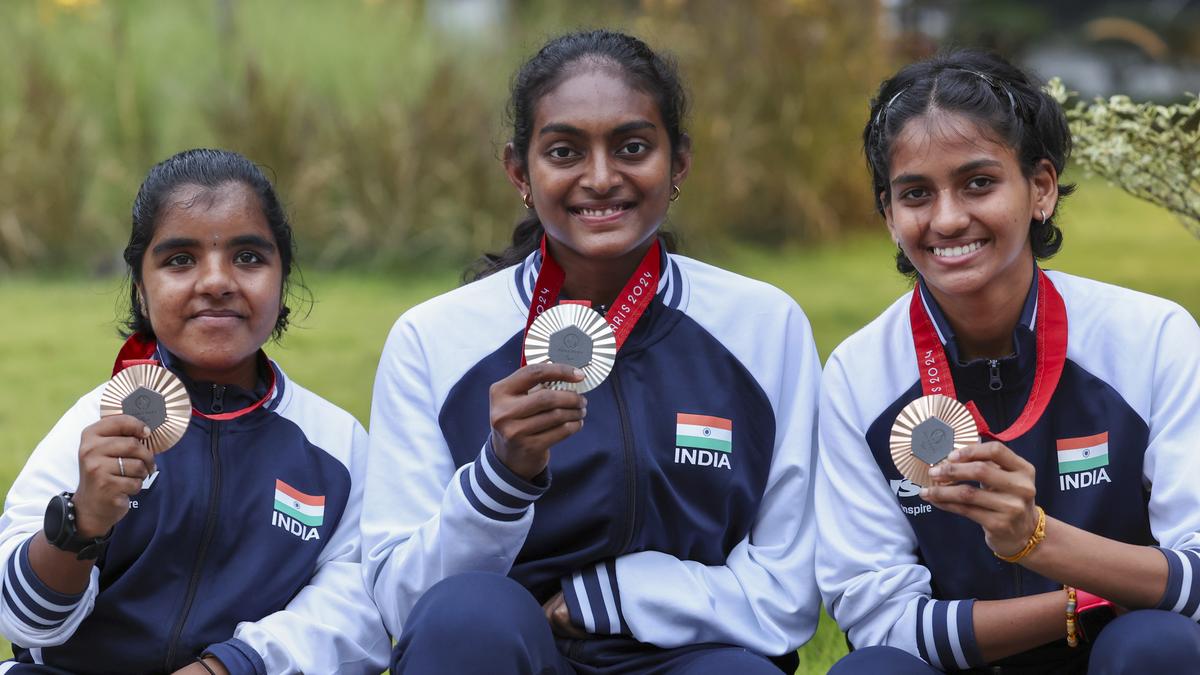In September 2022, the Bihar government pledged institutional support to eight languages: Sanskrit, Maithili, Bhojpuri, Magahi, Angika, Bajjika, Bangla and Surjapuri.However, experts say a language needs care, and political and social patronage, to develop and flourish.
“If my language is looked down upon by society, how will I feel proud of it? If there is no job opportunity in linguistics, why should one opt for a language?” asks Sweta Sinha of IIT-Patna. “In the Hindi belt, most people list Hindi as their mother tongue, not Bhojpuri or Magahi.”
The 2011 Census listed 1,369 mother tongues in the country. But many such languages and scripts are either no longer spoken or are slowly going extinct.
“The state government created various academies for the development of languages. But the academies’ directorships became political posts,” says Subhash Sharma, former development commissioner of Bihar and author of Bhasha Aur Lipi Ka Itihaas.
Buddha’s language
Pali is the language of Buddha’s sermons. It is taught in Allahabad, Magadh and Patna universities. Till 2013, UPSC aspirants could opt for it as a subject.
“The good news for Pali is that the language is not yet dead. At least one lakh people speak Pali across the country. It is now being taught at Fergusson College, Pune, and several other universities in Maharashtra. But there is a need to do more for this language,” says Dinkar Prasad, additional commissioner (admin), Darbhanga Division. He is a PhD in Pali with a gold medal from Delhi University and has taught the language to many UPSC aspirants.
“The governments of UP and Bihar should at least introduce this language in Class 12, if not for PG and graduation. Buddha was born, found enlightenment, gave his first sermon and attained Mahaparinirvana in these two states. Most of his sermons are in Pali… It must be reintroduced in UPSC as an option,” Prasad adds.
Old documents in Kaithi
Bihar government offices used the Kaithi script till the early 1900s. Now, it isn’t easy to find people who understand it. “In Bihar, most court cases are related to land disputes and many old land documents are written in Kaithi,” says Bhairab Lal Das, author of a book on the history of the Kaithi script.
Jayant Kumar, a professor at NIFT, Patna, has been working on developing key fonts in the Kaithi script. “The state government recently organised a crash course on Kaithi in Tilka Manjhi Bhagalpur University with 30-40 participants. This is a very good sign. For the development of any language or script, it must be used in regular writing or reading in society,” he says.
Only official native language
Maithili is the only native language of Bihar in the Eighth Schedule of the Constitution, which lists India’s official languages. Its script known as Mithilakshar or Tiruhata is one of the oldest scripts in which Sanskrit is written.
After a long-drawn agitation in the Mithilanchal region, Maithili was included in the Eighth Schedule in 2003. It was also included as an optional subject in UPSC. However, Bihar Public Service Commission is yet to include it as an optional subject in exams, says Aruna Chaudhary, head of Maithili department at Patna University. “Moreover, teaching this language has been discontinued in most Patna University colleges as there are few takers,” she adds.
Madan Mohan Jha, a Maithili-speaking schoolteacher, says: “I am from Mithilanchal. I speak Maithili with my mother and wife. But my kids don’t want to speak it.”
Inferiority complex
Nearly 30km east of Patna, at Pali village, people speak Magahi in a dialect different from Patna’s. And if you travel 50km west from Patna, people in Jehanabad, speak it differently. Similarly, Bhojpuri, prevalent in Bhojpur, Buxar, Kaimur, Rohtas, Saran, Siwan and Gopalganj, is spoken differently in Chhapra, Ara and Sasaram.
“Bhojpuri is limited to villages or the downtrodden people. If you speak Bhojpuri or Magahi in Patna, people look down upon you. You will seldom find two Bhojpuri or Magahi-speaking people talking in their mother tongue. Maithili is the only language people can be heard talking in. That’s why Maithili is placed better than other Bihar languages… My kids don’t want to speak Bhojpuri because they have an inferiority complex about the language,” says Vishnu Kant Tiwari, a Bhojpuri speaker.
(With inputs from B K Mishra and Abhay Singh)






